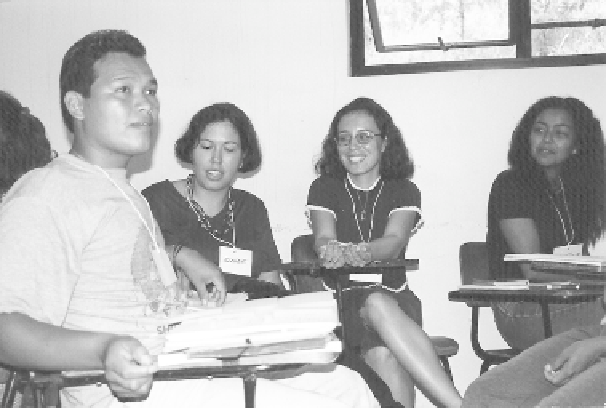Geography Reference
In-Depth Information
1. Indigenous Peoples have the right to the lands, territories and resources which
they have traditionally owned, occupied or otherwise used or acquired.
2. Indigenous Peoples have the right to own, use, develop and control the lands,
territories and resources that they possess by reason of traditional ownership or
other traditional occupation or use, as well as those which they have otherwise
acquired.
3. States shall give legal recognition and protection to these lands, territories, and
resources. Such recognition shall be conducted with due respect to the customs,
traditions, and land tenure systems of the Indigenous Peoples concerned.
It was startling for most teachers-in-training to realize that nearly every
mathematics instructor, Indigenous or not, believed that mathematics is a
universal “fact” that one learns in school, period. In other words, most workshop
participants regarded mathematics as both culture and value-free knowledge. In
general, non-Indigenous teachers talked insistently about their students' “low
scores” in standard mathematics tests. The overall feeling, expressed in many
ways throughout the event, was that the Indigenous instructors did not know much
“real” mathematics, let alone have their own mathematics. However, the various
activities here described revealed rich mathematical knowledges and practices
Figure 4.4. Teacher Mauro Karaí (far left), from the Área Indígena Guarani do Ribeirão
Silveira, northern coast of the state of São Paulo, explains to his colleagues the situation of
his people at the teacher training Program, Cajamar Institute, 1999.

